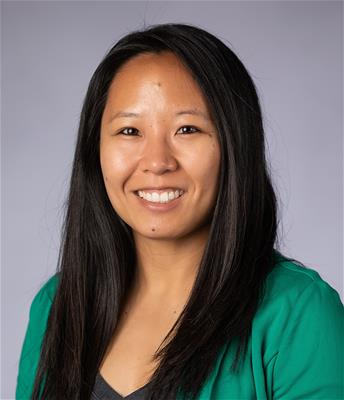
Sep 6, 2022 2022-09 Accountancy Faculty Research in Education
In AI, we (sort of) trust — auditing and algorithm aversion
Artificial intelligence is no longer the stuff of fiction. It’s a powerful force, driving major advances in every area of human endeavor from medical science to space exploration. It’s fast, powerful, precise and — in theory at least — less subject to the bias of human judgement. At the same time, however, those judgement can be essential in the auditing process, making the nuanced decisions that have a tremendous impact on companies and their operation. So, what happens when auditors are forced to choose between the tools they trust and the tech that’s shaping the future? That’s what incoming Gies assistant professor Jenny Ulla and her research partners wanted to find out.
 “It’s super interesting because a lot of the Big Four accounting firms are spending billions of dollars in developing these AI systems,” says Ulla. “That’s all great, but it won’t matter if auditors won’t use it or rely on
it.”
“It’s super interesting because a lot of the Big Four accounting firms are spending billions of dollars in developing these AI systems,” says Ulla. “That’s all great, but it won’t matter if auditors won’t use it or rely on
it.”
Her study, which focused on how auditors use advice generated from artificial intelligence, was a first-mover in the field – so much so that she and her coauthors were invited to present at the Public Company Accounting Oversight Board Conference.
Essentially, what they discovered was that auditors do have an aversion to information generated from algorithms; however, it wasn’t something that happened across the board. It turns out that the degree to which their test subjects discounted information
generated from AI was largely dependent on how much they perceived the quality of information obtained from other sources.
“If the client’s estimate is based on subjective inputs or information, then they’re not going to discount the AI,” said Ulla. “But if the client’s estimate is based on more objective information, then they exhibit algorithm aversion or they
tend to discount the AI system.”
In a separate study, Ulla also explored one of the big reasons why auditors may be averse to using AI, and that’s the algorithms’ increasing complexity.
“Algorithms can actually get better over time,” says Ulla. “That's great, but then the con of that is people may not understand how an algorithm comes up with its estimate.”
This leads to something called the black box effect.
“It’s a huge problem in accounting because, as accountants, we always need to justify, document, and verify," she said. "So, this algorithm may be giving us a high-quality estimate, but if we don't understand how it came up with the estimate, or if we can't verify it, are we actually going to use the advice?”
Ulla hopes to continue her research in these and other areas of judgment and decision making at Gies, which has always been on her list of top accounting schools. “During my PhD program, a lot of the accounting seminar papers were written by professors at the University of Illinois, so it was always like a dream school,” said Ulla.
That impression was only reenforced when she visited the campus in person. “My husband also flew out with me and got to know the city a little bit, and were just like, this is amazing. If I get the job, we’re going to say yes.”
Eventually, she got an offer and made good on her vow, trading an established position at the University of Nevada, Las Vegas, for a new career at Gies, where she’ll be teaching intermediate accounting in the fall. In addition to the school’s highly regarded faculty, Ulla says she’s impressed by its focus on technology and real-world collaborations with companies like Deloitte that are putting Gies on the edge of data analytics. And she doesn’t need an algorithm to tell her that this move is the right one for her. Quite simply, says Ulla, “I just can’t imagine a better place to be.”
